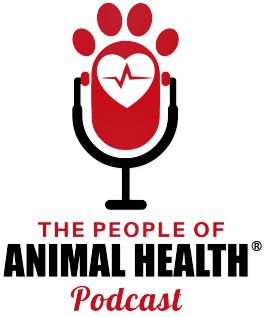Creating the best Animal Health podcast requires a blend of expert knowledge, engaging content, accessible delivery, and a genuine passion for animals and their welfare. Podcasts in this niche need to cater to diverse audiences, including pet owners, Veterinary professionals, and animal enthusiasts, all of whom expect trustworthy, practical information. The best Animal Health podcast is well-researched, have engaging hosts, feature a variety of topics, and maintain high production standards.
Let’s explore what makes an Animal Health podcast stand out, from content and format to expert engagement, production quality, and audience connection.
Key Ingredients of a Top-Tier Animal Health Podcast
1. Informative and Research-Based Content
The foundation of an outstanding Animal Health podcast is accurate, up-to-date, and thoroughly researched information. Animal health is a specialized field that often requires deep knowledge of Veterinary medicine, animal behavior, nutrition, and more. The best podcasts do not just provide surface-level advice; they delve into complex issues and offer listeners reliable, evidence-based guidance.
- Research-Driven Episodes: Every topic should be thoroughly researched, pulling from credible sources like Veterinary journals, recent studies, and established best practices in animal health. Episodes that break down scientific studies, emerging trends, or advanced treatment methods add significant value and authority to a podcast.
- Real-World Relevance: The best podcasts go beyond theory and provide practical, actionable advice that listeners can use in their everyday lives, whether it’s tips for managing pet anxiety or insights into preventive care for livestock.
2. Expert Guests and Credible Sources
Animal Health podcasts gain credibility by featuring guests who are professionals in the field. This includes veterinarians, animal trainers, behavioral scientists, nutritionists, and animal welfare advocates. Expert voices not only enhance the podcast’s credibility but also keep content varied and insightful.
- Diverse Expertise: A strong Animal Health podcast includes a range of professionals from different specializations. For example, episodes featuring a canine behaviorist, a Veterinary surgeon, and an animal nutritionist provide a well-rounded perspective on animal health.
- Insightful Interviews: The best podcasts skillfully conduct interviews, asking questions that draw out the expert’s unique insights. Listeners are looking for depth, so an ideal podcast won’t just skim the surface but will dive into the nuances of a topic with the guest.
- Timely Topics and Emerging Trends: By focusing on current topics and innovations—such as telemedicine for pets, genetic testing, and plant-based diets—the podcast positions itself as a go-to source for the latest in animal health.
3. Engaging Hosts with Passion and Knowledge
An engaging host can make all the difference in a podcast. A host who is genuinely passionate about animals and knowledgeable in animal health adds authenticity and energy to the podcast. The best hosts have a knack for explaining complex topics in a way that’s both approachable and entertaining.
- Empathy and Understanding: Since animal health can be a sensitive topic, the best hosts approach subjects with empathy and compassion, understanding that listeners might be dealing with sick pets or facing difficult decisions.
- Relatable and Friendly Style: A relatable host makes listeners feel as though they’re getting advice from a trusted friend. This is especially important in animal health, where listeners might have personal concerns about their pets or animals.
- Ability to Simplify Complex Topics: The best hosts can simplify Veterinary terminology and concepts without losing the accuracy of the information. This skill is crucial, as it allows the podcast to reach both lay audiences and professionals.
4. Broad and Varied Topics
To appeal to a wide range of listeners, the best Animal Health podcast covers a broad spectrum of topics. This variety keeps the content fresh and relevant to different types of animal lovers, from pet owners to Veterinary students.
- Comprehensive Coverage: The podcast should explore all aspects of animal health, including wellness tips, disease prevention, nutrition, behavioral issues, and medical advancements. Covering various species—from household pets like cats and dogs to farm animals and even exotic pets—broadens the podcast’s appeal.
- Pet Owner and Professional Appeal: By addressing topics relevant to both pet owners and professionals, such as new Veterinary treatments or behavioral studies, the podcast can create a loyal following from diverse audiences.
- Trending Issues and Seasonal Topics: Topics related to specific seasons or current events—such as summer pet safety, the latest in Veterinary telemedicine, or advice on keeping animals calm during holidays—keep the podcast relevant and timely.
5. Educational and Entertaining Format
A podcast needs to be both educational and entertaining to keep listeners coming back. The best Animal Health podcast strikes a balance, providing information that’s easy to understand and engaging to listen to.
- Narrative Storytelling: The best episodes often tell a story, whether it’s the journey of a rescued animal or the development of a groundbreaking treatment. Storytelling adds emotional depth and keeps listeners engaged.
- Mix of Formats: A combination of interview episodes, Q&A sessions, and narrative-driven episodes creates variety. For example, one episode might focus on a listener Q&A about common pet health issues, while the next could feature a veterinarian discussing a cutting-edge treatment.
- Accessible Length and Pacing: Podcast episodes should be long enough to cover topics in depth but not so lengthy that they lose listener interest. The ideal Animal Health podcast often features episodes ranging from 30 to 60 minutes, with a pace that keeps listeners engaged.
6. High Production Quality
High production quality is essential for a professional podcast. Poor audio or a lack of editing can detract from the content, making it harder for listeners to focus on the message. The best Animal Health podcast invests in high-quality sound, clear editing, and an overall polished presentation.
- Clear Audio and Sound Design: High-quality microphones, soundproofing, and good mixing ensure that the podcast sounds professional. Listeners should be able to hear both the host and guest clearly, without background noise or audio inconsistencies.
- Effective Editing: Effective editing trims unnecessary parts and ensures that the episode flows smoothly. For example, pauses, filler words, and irrelevant tangents are removed, keeping the episode focused and concise.
- Music and Sound Effects: Tasteful use of music and sound effects can enhance the listening experience. However, the best Animal Health podcasts use these elements sparingly to maintain a professional tone without distracting from the content.
7. Audience Engagement and Community Building
Building a strong listener community is a hallmark of successful podcasts. The best Animal Health podcasts engage with their audience, making listeners feel valued and part of a larger community.
- Listener Q&A and Feedback: Hosting Q&A sessions allows listeners to get personalized advice, making the podcast feel more interactive. The best podcasts invite listeners to submit questions via social media, email, or live chat, creating a two-way conversation.
- Social Media Presence: A strong social media presence helps keep listeners connected between episodes. Posting educational content, behind-the-scenes looks, or animal health tips on social platforms allows the podcast to reach a broader audience.
- Supportive Community: The best podcasts often create a space for listeners to connect with each other. This could be through a Facebook group, a Discord server, or a dedicated forum. These communities allow listeners to discuss episodes, share personal experiences, and get support from like-minded individuals.
8. Consistent Release Schedule and Dependability
Consistency is key in building a loyal audience. The best podcasts release episodes on a regular schedule, whether it’s weekly, biweekly, or monthly. Consistency helps listeners form a routine and builds trust that new content will be available regularly.
- Regular Release Schedule: Establishing a regular release schedule, such as every Monday or biweekly on Wednesdays, helps listeners know when to expect new episodes.
- Reliable Content Quality: Beyond frequency, consistency in content quality is essential. Each episode should meet a high standard, with the same level of research, production quality, and depth.
9. Passion for Animal Welfare and Education
Ultimately, the best Animal Health podcasts are created by individuals who are genuinely passionate about animals and their well-being. This passion comes through in the content, encouraging listeners to care more deeply about the animals in their lives.
- Animal Advocacy: Podcasts that advocate for animal welfare and encourage responsible pet ownership resonate strongly with animal lovers. Episodes might cover topics like the ethics of pet breeding, shelter adoption, or conservation efforts.
- Commitment to Education: The best Animal Health podcast is driven by a commitment to educate listeners. They help the audience make informed decisions about pet care, connect them with resources, and inspire them to prioritize animal health.
Creating the best Animal Health podcast requires a thoughtful balance of informative content, expert engagement, quality production, and genuine passion. By focusing on research-driven topics, featuring credible experts, and engaging with listeners, these podcasts become a trusted source of information and inspiration. For listeners, the best Animal Health podcasts are not only a source of knowledge but also a community that builds a deeper connection to the animals they care about. Through education, advocacy, and community-building, these podcasts contribute to the well-being of animals everywhere, making them a valuable resource for anyone invested in animal health.

